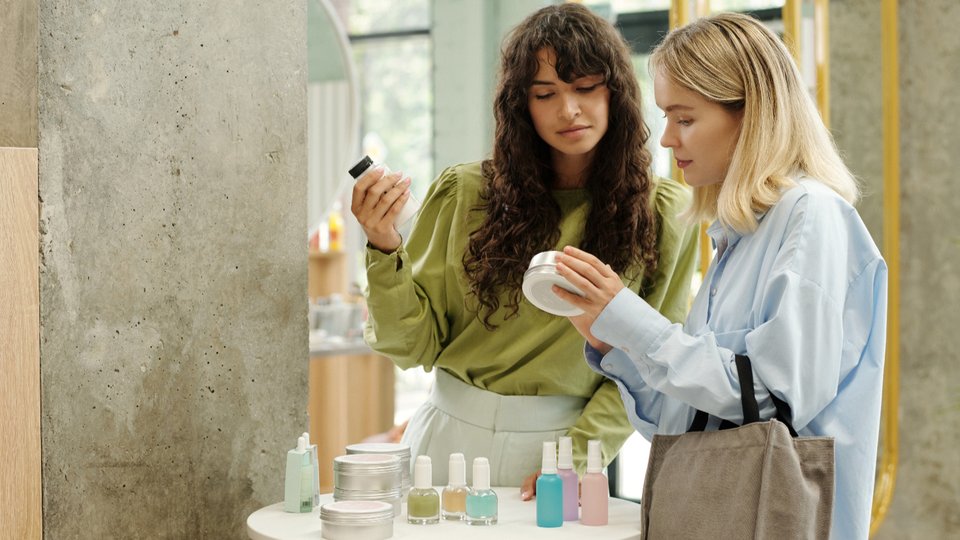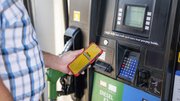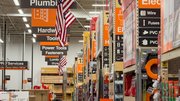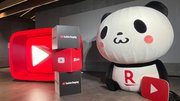Marketing
How retailers can give what beauty shoppers want: A personal customer experience
While the days of a makeover at a cosmetics counter in a department store aren’t over, as consumers are still loving the in-store experience, more and more beauty shoppers are embracing tech-driven options.

June 20, 2023 by Judy Mottl — Editor, RetailCustomerExperience.com & DigitalSignageToday.com
While the days of a makeover at a cosmetics counter in a department store aren't over, as consumers are still loving the in-store experience, more and more beauty shoppers are embracing tech-driven options when it comes to choosing eyeliner or lipstick or blush options.
Consider this statistic: Nearly half, 43%, of shoppers would rather shade-match for foundation through AI online than test in-store. And even more, 62%, are more likely to buy a product if they can use beauty tech to find that perfect shade or formula.
Those findings are from a Bolt report released this month, conducted with YouGov, that polled 1,000 consumers on how AI and tech tools are impacting the shopping experience and how personalizing the shopping experience can drive customer engagement and increase customer loyalty.
It's the first report Bolt's done on beauty e-commerce and the company has seen the beauty market's revenue outperform year-over-year, according to Shilpi Narang, SVP of customer experience at Bolt.
"In order to inform beauty and skincare brands on what's next in the industry, we really wanted to home in on what consumers are prioritizing when it comes to their purchases and shopping experiences," Narang said in an email interview.
The tech impact
All the beauty consumer trends could add up big time as consumers are clearly spending when it comes to beauty.
According to McKinsey & Co., the industry is expected to reach approximately $580 billion by 2027 and is projected to grow by 6% annually.
The beauty and personal care industries in the U.S. will account for $94.41 billion this year, according to the Bolt report.
So it's little surprise to learn that top cosmetic brands are busy tapping AI and other tech to take advantage of consumer wants and expectations. Investment in AI and the cosmetics market has gone from $2.7 billion in 2021 and is projected to hit $13.34 billion by 2039, according to data from Insight Ace Analytics.
"AI and personalization were the main standouts from the beauty report. This is a unique shift in consumer behavior as we increasingly rely on tech for product research prior to purchase," Narang said, noting the report found 57% of Gen Z consumers are willing to pay as much as 11%-20% more for their beauty purchases if they involve custom and curated online shopping journeys.
Leading the beauty tech investment wave are L'Oréal, Estee Lauder, Neutrogena and Ulta — brands that all have integrated AI and AR technologies to provide interactive online shopping experiences.
And the results have been rewarding.
Estee Lauder's virtual lipstick try-on achieved a 2.5X higher conversion rate from shoppers who used the AI tool, according to the Bolt report. Neutrogena's partnership with Nourish culminated in 3D-printed skin supplements, enabling personalized skincare with a simple photo.
"These success stories highlight the demand for AI- and AR-powered personalized try-on experiences. Investing in such technologies boosts shopper confidence and drives higher revenue," stated the report.
And it's not just emerging tech changing the beauty purchase scenario.
Getting personal with customers can pay off as well. The Bolt data revealed that more than half, 58%, would pay 10% more on beauty products if they're accompanied by personalized online shopping experiences.
Personalize, personalize, personalize
Getting personal with beauty consumers presents a tremendous opportunity but the key to capitalizing, according to Narang, is crafting genuine connections with shoppers on an individual level, understanding and valuing customer identity and knowing the customer.
Brands doing it right illustrate the potential for strong return on investment. Curology, Il Makiage and Prose, are just a few beauty brands enjoying a solid ROI.
Prose Haircare, featuring over 50 million unique product formulations, online consultations and personalized quizzes, has gained 250,000 loyal subscribers, according to Bolt data. Curology, a personalized skincare brand, pulled in over $200 million in revenue in 2022.
"These numbers speak volumes. Here, they tell a clear story. To thrive in a world focused on identity and shoppers' needs, beauty and skincare brands must embrace personalization," stated the report.
The report lists several approaches retailers can take to jump on the personalization path including:
- Pay attention to your shoppers, customers and employees to understand their concerns and values. Gather shopper data such as gender, age, race and ethnicity through store accounts to gain insights into your customer base. Use this insight to develop inclusive products and marketing campaigns.
- Utilize shopper data from store accounts to track buying patterns and preferences across different demographic groups.
- Deepen personalization based on shopper identity. Tailor messages and experiences of the product and across the entire customer journey.
- Implement loyalty programs to reward customers and offer personalized deals and promotions based on shoppers' preferences. These types of initiatives will unlock repeat shoppers.
- Use customer data from store accounts for targeted remarketing campaigns. Cater personalized ads and messaging to your customers that deliver value and resonate.
The report results indicate skincare and beauty brands need to realize the importance of knowing the customer on a personal level, said Narang.
"Industry brands have the opportunity to engage with the 45% of shoppers who have not purchased a product due to the lack of personalized options. Creating tailored experiences by truly understanding shoppers' identities and getting 'personal' with them will not only win business but build lifetime customer relationships," she said.
Another big reveal is that beauty preferences go beyond product quality and encompass human values, given 58% of those polled cited diversity and inclusion as important factors when buying beauty and skincare products.
"What's clear, inclusivity in beauty isn't just a passing trend, but an essential component for a brand's long-term success," said Narang.
"Also, it goes without saying that beauty retailers should pay attention to and invest in technology to enhance personalization for consumers. Brands should be thinking about what's next in the beauty space from shopping technology to the emerging trends. These insights will help them stay ahead of the competition, make adjustments on strategy to continue to scale and remain in-tune with the shopper experience — one that is personal and inclusive — to create repeat and loyal customers."
 ChatGPT
ChatGPT Grok
Grok Perplexity
Perplexity Claude
Claude




